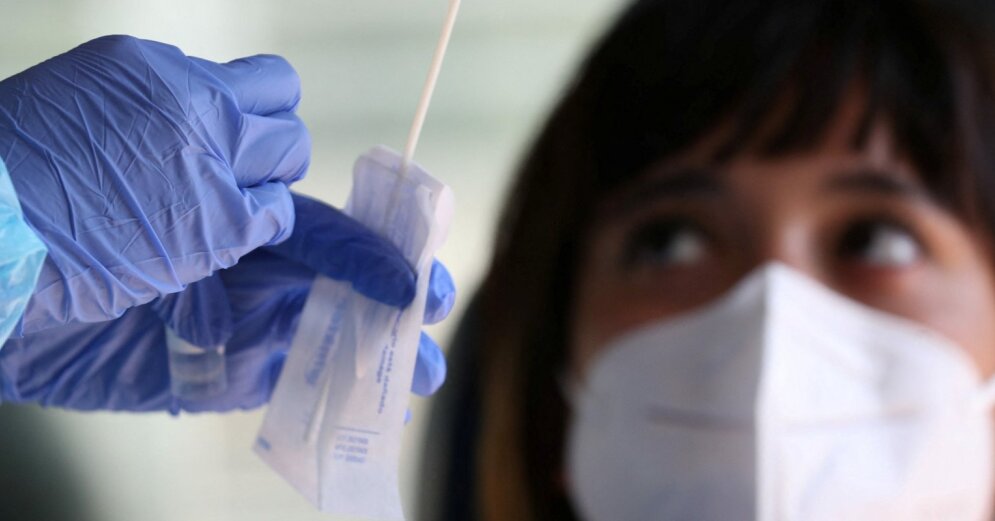Despite the call of the authorities and the reiteration of the vaccination mandates against the COVID-19 to students and public employees by the Supreme Court, the pace of inoculation on the island has slowed, the president of VOCES: Coalition for Immunization and Health Promotion, Lilliam Rodríguez, warned yesterday.
The reduction, indicated Rodríguez, is notable both in the vaccination of adults and minors.
“This (last) week, there was a significant decrease in the mobilization of all our vaccination centers,” he said. “We (VOCES clinics) vaccinate 33% of the population. I recognize that there is more access (to get the vaccine). This week (which begins today) we are going to analyze what strategies we are going to follow (to encourage vaccination)”, he added.
According to the COVID-19 Vaccine Report in Puerto Rico, 76.1% of the population has “full doses” of the product, which means two doses. However, only 35.7% of people have the booster or third dose, which is recommended to be administered six months after the second dose, because studies have shown that the effectiveness of the vaccine decreases over time. According to the Report, 1,025,141 people in Puerto Rico have already received the first two doses, but need a booster.
At the pediatric level, meanwhile, 145,187 children between the ages of 5 and 11 have at least one dose of the vaccine. With the two doses, 95,585 minors of this population have already been registered, that is, 41.5%.
According to Rodríguez, between last November and December, in the COVID-19 vaccination clinics organized by VOCES, mainly in various shopping centers, some 200,000 people were inoculated.
He added that, along with Health Department, VOCES launched the “Get up to date” campaign and created the Mountain Route to establish fixed vaccination centers in Aguas Buenas, Barranquitas, Cayey, Comerío, Naranjito and Orocovis.
Rodríguez recalled that, when vaccinated, those under 20 years of age must be accompanied by one of their parents or legal guardian. On the other hand, he highlighted that VOCES will also be visiting schools that have contacted them to deliver and administer vaccines.
In the latest executive orders for the control of COVID-19 in the country, the governor Peter Pierluisi Extended until February 21 the time limit for students from 5 to 11 years old to complete their two vaccination doses and those from 12 years old and older to have their booster dose.
Meanwhile, in the week just concluded, the Supreme Court determined “there is no place” for a request for review and motion for assistance presented in a case that sought to stop the COVID-19 vaccination mandates for students and public employees, established by Pierluisi and the Secretary of Health, Carlos Mellado, through executive and administrative orders.
On the other hand, the United States Army also announced that it will begin to discharge soldiers who refuse to be vaccinated against COVID-19, unless an approved exception or pending request is made. The order applies to Army soldiers, reserve component soldiers serving on active duty under Title 10, and cadets.
Through Sergeant Katherine Ramos, of Army Public Affairs, it was reported that 95% of the soldiers assigned to the First Support Command of the United States Army Reserve, in Puerto Rico and the Virgin Islands, have complied with the compulsory vaccination against COVID-19.
“Until now, the administrative actions of separation from service only apply to active Army soldiers and reservists who are active full time,” Ramos reiterated.
He added that part-time US Army Reserve soldiers have not received an order to begin the administrative separation process. They have until March to submit documentation with their requests for exceptions to compulsory vaccination, which include administrative, medical or religious considerations, he said.
Ramos said that, at the moment, there is no soldier assigned to the Reserve in Puerto Rico and the Virgin Islands who is pending to begin the administrative process established to be separated from the Army.
As of press time, it was not possible to get a reaction from the National Guard on how many members were vaccinated against the virus and if they had received any similar orders to penalize or terminate those who refuse to be immunized.
–
:format(jpeg)/cloudfront-us-east-1.images.arcpublishing.com/gfrmedia/AGPIKZT7INGQ5EZPELEBBHIWQY.JPG)

